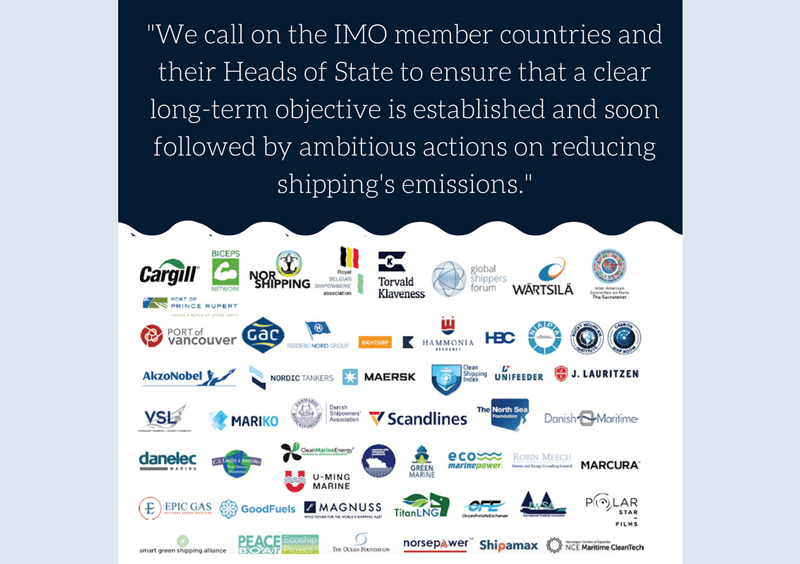A broad range of signatories, including some of the biggest names in shipping, have released an open letter to IMO members asking the UN organisation to provide better leadership and direction towards CO2 reduction. The letter is timed in advance of this weeks MEPC 780 meeting.
The letter says that higher operational and technical efficiency is already achievable with market-ready tools, but it suggests that an uneven playing field of requirements across different national legislations is hampering their implementation.
The letter is signed by more than 50 companies and organisations, including Maersk, Wartsila, Akzo Nobel, Scandlines, J.Lauritzen and others.
The letter reads:
We, the undersigned, call on the Heads of State of IMO member countries to recognize the capability and aspiration
of the broader community involved in shipping to join global efforts to combat climate change. This requires swift
and decisive action by IMO member states to begin working to define the industry’s contribution and to develop
policies that drive investment in cost-effective GHG emission reduction efforts within the industry. With a robust
framework for managing national emissions now agreed in Paris and momentum for addressing international aviation
emissions under ICAO, it is time to recognize the important role the global shipping industry must play in holding
global temperatures “well below two degrees Celsius.”The recent agreement on the Global Data Collection System and past agreement on energy efficiency design
standards demonstrate that the diverse interests at IMO can find common ground on complex and contentious issues.
However, even with existing standards and current market forces, shipping’s emissions are expected to substantially
increase over the coming years. To curb this trajectory, IMO member countries must demonstrate that they can match
the ambition and pace of UNFCCC.Industry leaders are ready to collaborate to find solutions. The industry has an abundance of market-ready tools and technologies that can achieve higher operational and technical efficiency, but needs the IMO to act in order to create clear market signals, foster an even playing field, and avert a patchwork of national-level requirements.
We support the discussion at MEPC to establish the shipping industry’s fair share of the global responsibility to
address climate change. We call on the IMO member countries and their Heads of State to ensure that a clear,
ambitious long-term objective is established and soon followed by ambitious actions that help to drive investment in
low-carbon solutions.

